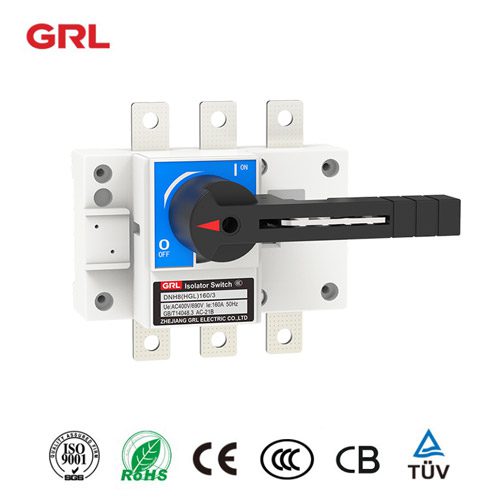
本身
html
Load Break Isolator: Essential Equipment for Electrical Safety
In the realm of electrical systems, safety and reliability are paramount. One of the key components ensuring these qualities is the Load Break Isolator. This device plays a critical role in managing electrical circuits, providing both isolation and load-breaking capabilities. Whether in industrial settings, power distribution networks, or commercial installations, load break isolators are indispensable for maintaining operational safety.
What Is a Load Break Isolator?
A Load Break Isolator is a mechanical switching device designed to disconnect electrical circuits under load conditions. Unlike standard isolators, which are only meant for isolation when the circuit is de-energized, load break isolators can safely interrupt current flow. This makes them ideal for applications where frequent switching is required without the need to de-energize the entire system.
Key Features of Load Break Isolators
Load break isolators come with several features that enhance their functionality and safety:
- Load Breaking Capacity: Can safely interrupt rated load currents without causing damage.
- Isolation Function: Provides a visible break in the circuit for maintenance and safety.
- Compact Design: Often designed to fit into limited spaces while maintaining high performance.
- Durability: Built to withstand frequent operations and harsh environmental conditions.
Applications of Load Break Isolators
Load break isolators are widely used across various industries and settings, including:
- Power Distribution Networks: For safe switching and isolation of feeders and transformers.
- Industrial Plants: To manage machinery and equipment circuits efficiently.
- Renewable Energy Systems: In solar and wind power installations for circuit management.
- Commercial Buildings: Ensuring safe electrical operations in large facilities.
Why Are Load Break Isolators Essential for Electrical Safety?
Electrical safety is non-negotiable, and load break isolators contribute significantly by:
- Preventing Accidents: By allowing safe disconnection of circuits under load, they reduce the risk of electrical shocks and fires.
- Facilitating Maintenance: Isolators provide a clear break in the circuit, ensuring maintenance personnel can work safely.
- Enhancing System Reliability: By enabling controlled switching, they minimize downtime and equipment damage.
Choosing the Right Load Break Isolator
Selecting the appropriate load break isolator depends on several factors, such as:
- Voltage Rating: Ensure the isolator matches the system voltage.
- Current Rating: The device should handle the maximum expected current.
- Environmental Conditions: Consider factors like humidity, temperature, and exposure to corrosive elements.
- Mounting Style: Choose between panel-mounted, pole-mounted, or other configurations based on the application.
Keyword: Load Break Isolator
Conclusion
The Load Break Isolator is a vital component in modern electrical systems, offering both safety and operational efficiency. Its ability to interrupt load currents and provide isolation makes it indispensable